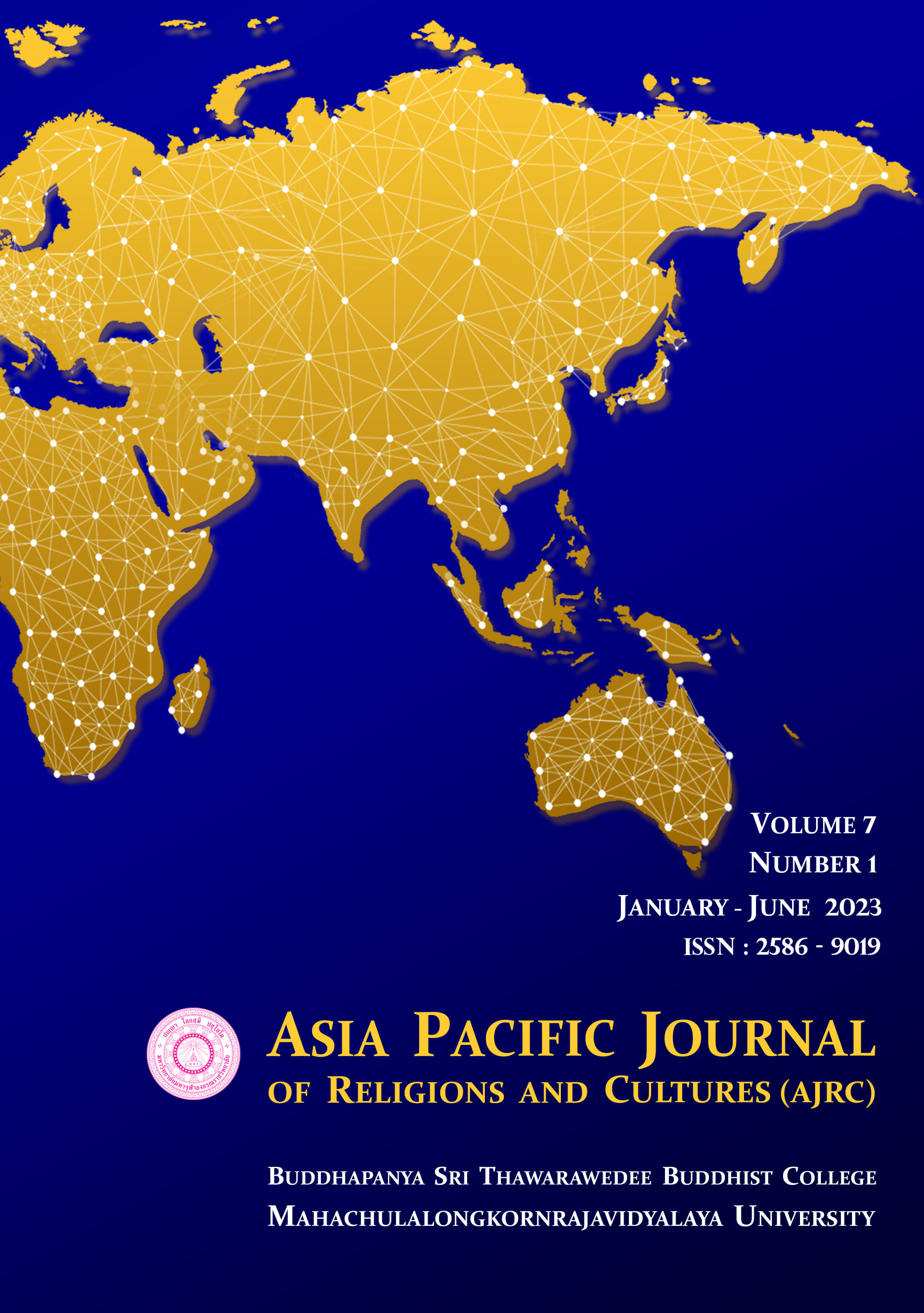THE DEVELOPMENT OF THE INNOVATIVE MODEL OF SCHOOL ADMINISTRATION IN THE SECONDARY EDUCATION AREA OFFICE 18
Main Article Content
Abstract
The purposes of this research were 1) to study the operating conditions of the innovation of school administration under the office of secondary education service area 182) to develop the model of school administration innovation under the office of secondary education service area 18 and 3) to assess The appropriateness and the possibility of the model of school administration innovation under the secondary education service area office 18 samples used in research studies Phase 1 consists of 50 school administrators under the Office of Secondary Educational Service Area 18, academic year 2018, and 50 teachers and officials of the academic affairs department head of the School under the Office of Educational Service Area 18, Phase 2. The group discussion was organized by 9 people. Faze 3 the person who provided information for assessing the appropriateness and possibility by experts and experts. The research instruments were questionnaires, interviews and seminars based on experts. And assess the suitability and the possibility by experts and experts in the quality of the questionnaires by evaluating the IOC. Only select the questionnaires with IOC = 0.50. Up and the confidence by finding the Cronbach's alpha coefficient (Cronbach) has a reliability of 0.98. The statistics used for data analysis are the quantitative data are Percentage, Mean and Standard Deviation. Deviation) for the qualitative data, the content analysis method is used. Analysis) from the suggestions of experts and experts using the method of summarization as a essay.
1) The results of the analysis of the development of the model of school administration innovation Under the Office of Secondary Education Service Area 18, it was in the very good level. The highest mean was the learning organization principles. Followed by the principles of training and development and the least mean, the principle of total and each aspect found that the organization structure in general is at a high level. When considering each item, it was found that the one with the highest mean was the teacher and believed that the organizational structure would be the inspiration for creating innovation, followed by the organizational structure that contributed to the promotion of teachers Educational personnel work together to create innovation.
2) The development of the model of school administration innovation under the Office of Secondary Education Service Area 18 consists of 5 components which are 1) the principle of the model 2) the purpose of the model 3) the operation method of the model 4) the guidelines for the model evaluation And 5) results from the use of the opinions level form of experts on the appropriateness of the draft, the development of the model for school administration innovation under the Office of The study conducted by the School District 18 as a reasonable level and by considering that every job has a job evaluation results in much higher.
3) The results of the analysis of opinions of experts and experts in assessing the feasibility of the development of the model of school administration innovation under the Office of Secondary Educational Service Area 18, found that the assessors have opinions on The development of the model of school administration innovation under the Office of Educational Service Area 18 was at the highest level when considered. Francesca was found that in most every way.
Article Details

This work is licensed under a Creative Commons Attribution-NonCommercial-NoDerivatives 4.0 International License.
References
Kittipong Tintayang. (2008). Report on the performance of small school development, master
classes, school-Level assimilation Mae Hong Son House, Mae Hong Son. Mae Hong Son:
Ban Mae Kong Pae School.
Kriengsak Chareonwongsak. (2011). Small quality school crisis. Search date 21 August 2012,
accessible from http://www.kriengsak.com/node/1880.
Kasem Wattanachai. (2002). Thai educational quality development. Bangkok: Arun Printing.
Morale, Bachelor of Men. (2005). Municipal School Administration for Quality Development for
Excellence in Educational Region 3 And 4. Master of Education thesis, Education
Administration, Graduate School,Kasetsart University.
Khattiya Duangsamran. (2009). Strategic management model for small schools. Philosophy of
Philosophy Doctor of Philosophy, Educational Administration, Graduate School, Silpakorn
University.
Chumphon Poonphatchiwin. (2003). Conduct future research with EDFR. Journal of Education, 1
(32), 1-19.
Chanita Rak citizen. (1998). Delphi technical research in Thosaporn Sirisamphan (editor),
Policy analysis techniques. Bangkok: Chulalongkorn University, 14 (2), 1-9.
Chuanpharangkun. (2009). Innovation in the management of border schools in the western region.
Thesis Ratchaburi: Rajabhat University Chombueng Village. The study of the innovation
organization of basic Education institutions under the Office of the Basic Education
Commission in the province.
Ratchaburi. (2013). Thesis. Ratchaburi: Chombueng Village Rajabhat University.
Thanna Khaemmani and others. (2004). Thinking science. Bangkok: Academic Quality
Development Institute.
Boonchom Sri Sa-at. (2010). Preliminary research. No. 8, Bangkok: Suviriyasan
Saving Suksamran. (2012). the participatory management model in the preparation of basic school
curriculum. Thesis.Ubon Ratchathani: Ubon Ratchathani Rajabhat University.
Phra Mahasutha Apakaro. (2005). Natural networks, knowledge and management. Bangkok: A
project for Enhancing learning for the happy community.
Porntipa Lungwattanakit. (2006). Entrepreneurs and innovation development in innovation
dynamics. Bangkok: Office of Innovation National. 14.
Samut saphon (2007). "The use of research and development in doctoral thesis," Rajabhat
University Journal Ubon Ratchathani. 2 (July - December 2007): 83-84.
Office of Educational Innovation Development. (2006). Guidelines for the implementation of
Buddhist schools. Bangkok: Thai Printing Printing Factory.
Onanong Rotwattanaboon. (2011). Innovative leadership model development. Doctor of Public
Administration Thesis, Faculty of Public Administration National Institute of Development
Administration.


